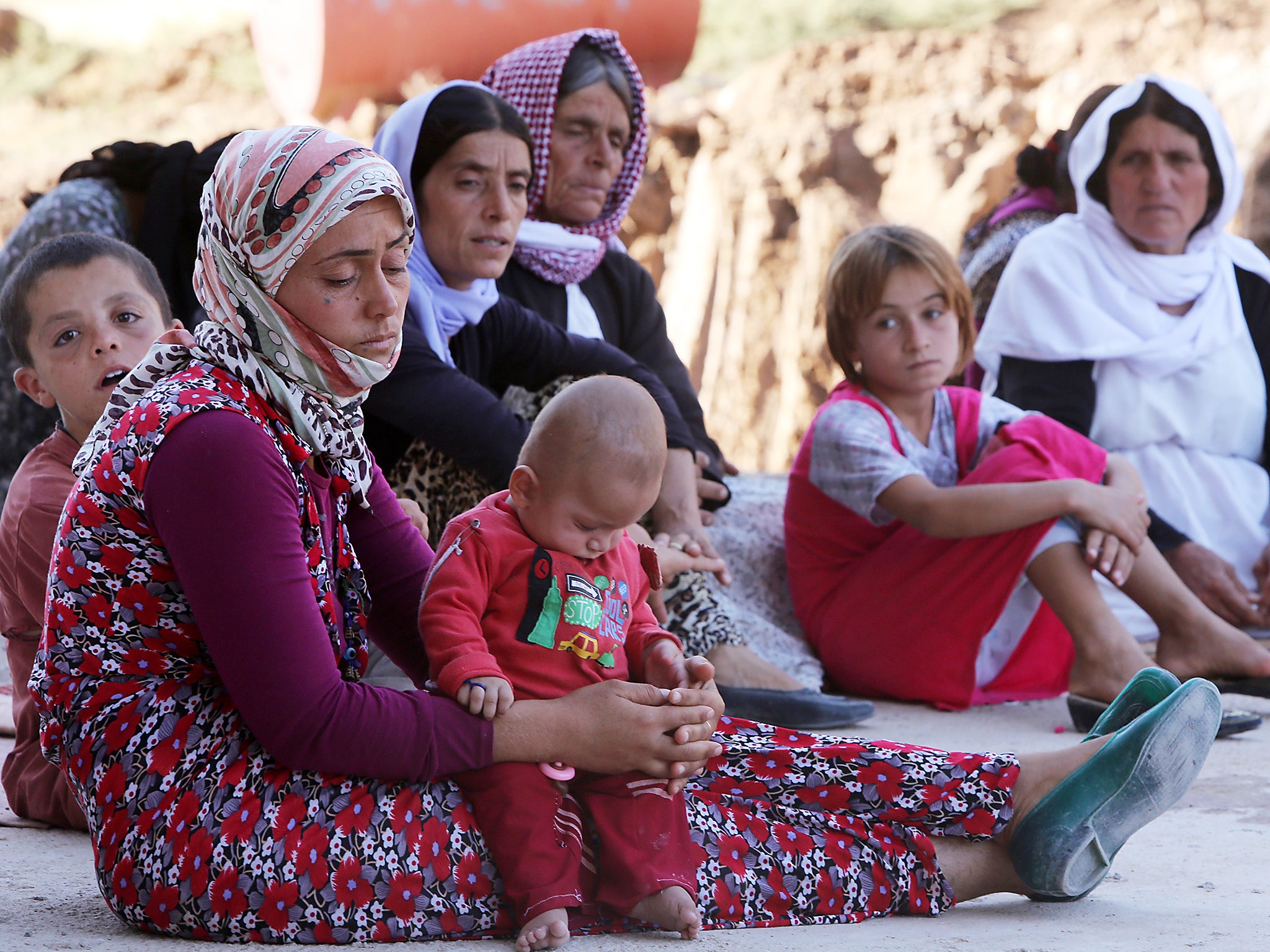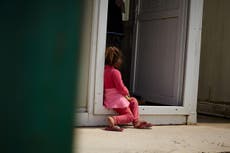Isis may be gone but we are handing them a victory over the Yazidi people they tried to destroy
Those who have managed to survive rape, torture and genocide are being denied the fundamental tools for rehabilitation and to begin rebuilding their lives

This week marks the five-year anniversary of the beginning of the genocide against the Yazidi – a religious minority – at the hands of Isis across Syria and Iraq. Most of the atrocities committed against the Yazidi people – especially its women and young girls – are too abhorrent and extensive to recount. While the genocide itself might have ceased, this is only the first part of the challenge; the consequences are bitter and painful in their own right.
It was a horrific story of systematic sexual violence and coordinated military persecution. Jihadis marched thousands of men to slaughter before transporting thousands more women and children to Isis slave markets to be bartered and sold.
The fighting in many Isis strongholds has now ceased, but 2,900 women and children are still missing, and thousands of Yazidi women and children who lived under their sadistic regime are struggling to reintegrate back into their communities.
This is because there is a striking disparity between how local and international communities focus on properly assimilating genocide survivors, psychologically as well as physically.
Their physical scars may be more visible, but the mental traumas inflicted are much more enduring. A lack of rehabilitation services and mental health support is preventing the 6,500 women and children who were taken captive by Isis to meaningfully integrate back into their communities.
Self-harm, PTSD and poor mental health impact more than 80 per cent of women and girls who were held captive during the conflict.
The psychological damage inflicted is exacerbated by the serious challenges they face upon return. Many of them realise that they have other relatives still trapped in captivity; whole communities are displaced into miserable camps outside their homeland; women who have suffered physical and sexual abuse are ostracised; and the Yazidi children who have been brainwashed by their captors are shunned and denied access to education.
The result is perverse: those who have managed to survive rape, torture and genocide are being denied the fundamental tools for rehabilitation and to begin rebuilding their lives. We must empower the survivors of the Yazidi genocide to successfully rebuild themselves and their communities so that their generation is not forgotten and lost.
This requires supporting community-led initiatives to rebuild schools, provide access to PTSD treatment and discrete health services for victims of conflict-related sexual violence, and providing expertise and resource on the complexities of psychological treatment, given this field is uncommon to the communities in question.
For the most severe cases, we must provide for appropriate resettlement projects so that these survivors can live the rest of their lives in peace.
During a mission to rescue Yazidi civilians fleeing Isis advances in 2014, our helicopter crashed, and I barely escaped with my life. It was while lying in the wreckage, surrounded by the carnage of Isis’s occupation, that I realised more than ever what was at stake, and was spurred on even further to commit my life to saving those most in need from my community. Now, outside of the intensity of the events of five years ago, I realise that escape from their captors is only the start of a long journey back to normality.
If we do not address the woeful lack of psychological provisions for the Yazidi people, we risk losing a whole generation women and children who have survived the horrors of genocide but who face being lost to its aftermath. It will depend on collaboration between local and international communities to empower them to live safe and successful lives.
Mirza Dinnayi is a Yazidi activist who works with victims of Isis, and who helped save hundreds of women and children during the Iraqi war. He is one of three humanitarians speaking at the inaugural Aurora Forum this October in Yerevan, Armenia




Join our commenting forum
Join thought-provoking conversations, follow other Independent readers and see their replies